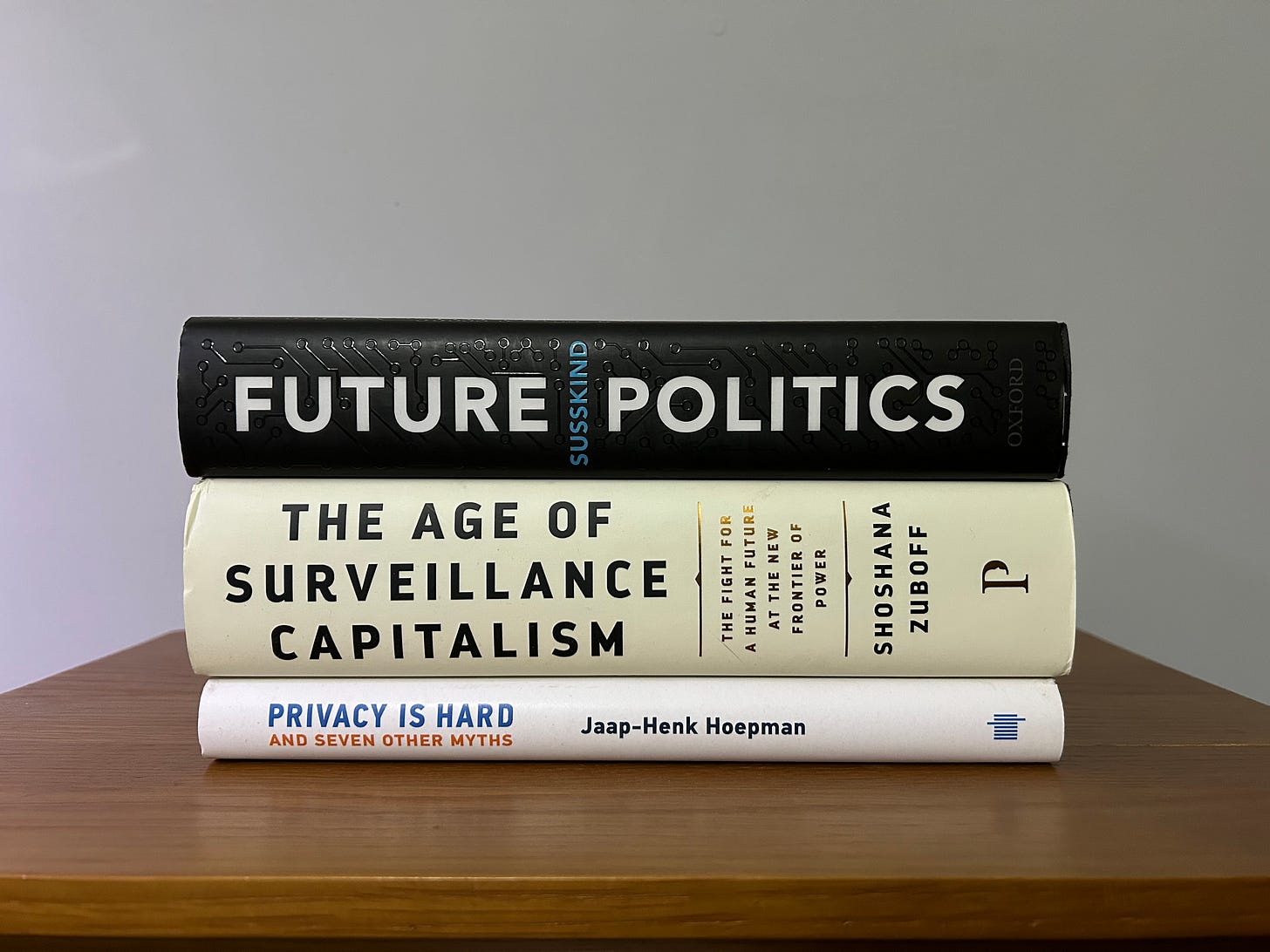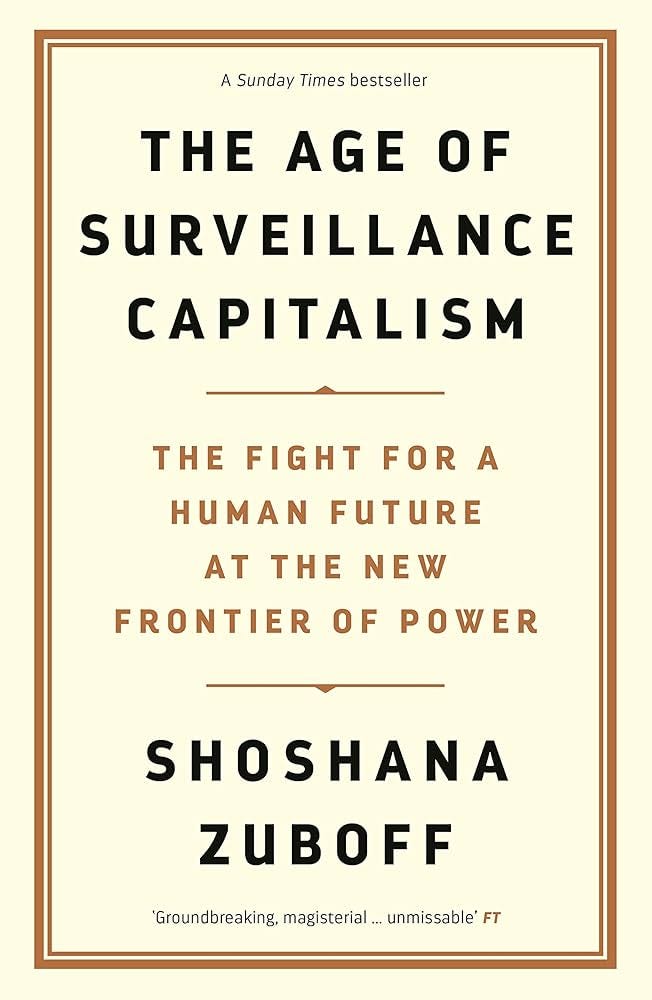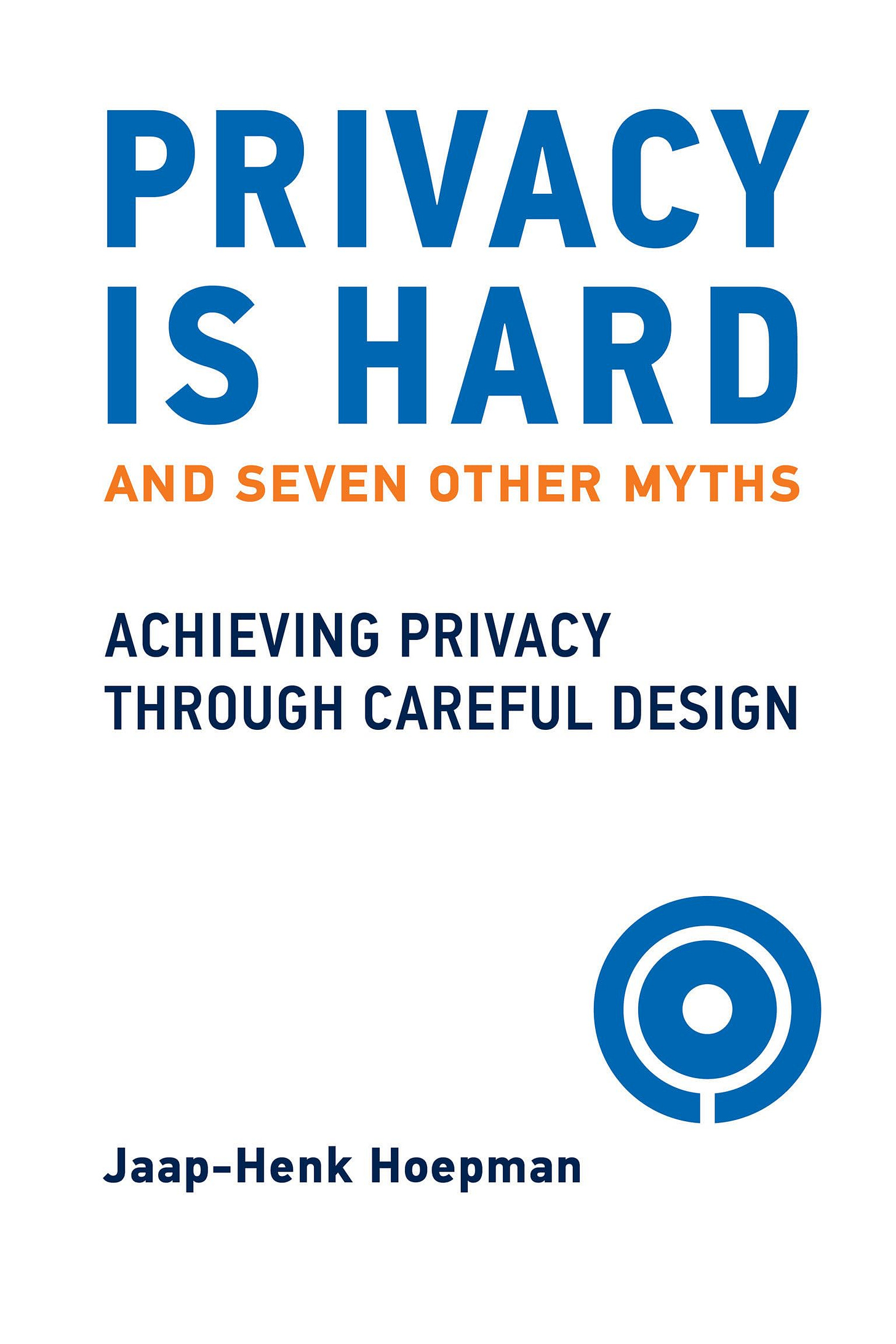This posts lists some of the best books on data rights that I have read (so far). The list is neither in any particular order nor exhaustive.
The list for this post includes the following:
Future Politics: Living Together in a World Transformed by Tech (OUP 2018) by Jamie Susskind
Age of Surveillance Capitalism: The Fight for a Human Future at the New Frontier of Power (Profile Books 2019) by Shoshana Zuboff
Privacy is Hard and Seven Other Myths: Achieving Privacy Through Careful Design (MIT Press) by Jaap-Henk Hoepman
Please leave comments on your thoughts on these books if you have read them, or if there other books on data rights that you like.
Future Politics: Living Together in a World Transformed by Tech (OUP 2018) by Jamie Susskind
This Substack is about the intersection between law, technology and society. Susskind I think presents the best explanation for why this intersection is so important to our future.
As a practising barrister who has dealt with plenty of matters in this space, Susskind's Future Politics provides a well-explained conceptualisation of how technology shapes our lives and how we should respond to this. He proposes using political theory to analyse our future as impacted by technology in terms of power, liberty, democracy, justice and politics.
The introductory chapter of the book includes my favourite passage and I have quoted several times in my previous posts:
Politics in the twentieth century was dominated by a central question: how much of our collective life should be determined by the state, and what should be left to the market and civil society? For the generation now approaching political maturity, the debate will be different: to what extent should our lives be directed and controlled by powerful digital systems - and on what terms? This question is at the heart of Future Politics.1
If you are not familiar at all with the data rights space, and want a text that introduces you to what it is all about, this is the book to start with.
Age of Surveillance Capitalism: The Fight for a Human Future at the New Frontier of Power (Profile Books 2019) by Shoshana Zuboff
While Future Politics is a more introductory tome, the Age of Surveillance Capitalism is a more comprehensive look into the perils of the powerful digital systems that control our lives.
Zuboff's work is a heavy read. But if you want to intimately understand the risks posed by today's technology companies, the Age of Surveillance Capitalism is essential.
The book includes the story of how Google came to embrace surveillance capitalism, and how Facebook went on to master it. Such companies operate a system focused on profiting from the collection and analysis of behavioural data left behind when we interact with their services and platforms, resulting in a system that leaves one group powerful (Big Tech) and other rather powerless (users of Big Tech). You can read more about this in my previous looking at the surveillance capitalist model.
In covering the story about Google's embracement of surveillance capitalism, Zuboff reminds us how this system, and the way it dominants much of modern technology today, was never an inevitability, but a choice made by tech companies:
Key to our conversation is this fact: surveillance capitalism was invented by a specific group of human beings in a specific time and place. It is not an inherent result of digital technology, nor is it a necessary expression of information capitalism. It was intentionally constructed at a moment in history.2
Privacy is Hard and Seven Other Myths: Achieving Privacy Through Careful Design (MIT Press) by Jaap-Henk Hoepman
Future Politics and Age of Surveillance Capitalism deal with the theories underlying data rights. Privacy is Hard and Seven Other Myths deals with the practical.
Hoepman tackles the common misconceptions regarding privacy in the modern digital age. This includes how easily seemingly 'anonymised' data can be used to identify a person, everything wrong with the argument against privacy in the form of 'you have nothing to hide', and why privacy does not need to come at the expense of security.
An important point that Hoepman makes regarding privacy is that its implementation, fundamentally, requires a cultural shift where privacy is valued more than just a regulatory tick-box:
Even though proper privacy protection requires a fundamental shift in how systems are designed, it is really not as hard as people tend to think. Throughout this book, we have encountered many examples in which a simple shift in the underlying approach, a change of perspective, makes it much easier to cater for privacy. We have also seen that there are many privacy-enhancing technologies ready to be used for the implementation of more privacy-friendly systems.3
In addition to this though, ensuring sound privacy does also require a rewiring of the underlying systems that we have become so familiar with over the years:
Significantly improving the privacy of the apps and services we use should be our first priority. But at some point, we need to dig deeper down into the technology stack and reconsider the designs for our computers and networks, both at the hardware and operating system levels. These designs are half a century old by now and never fundamentally changed, while the world in which they are used has changed beyond recognition. We are stretching the boundaries of their use beyond the breaking point - not only in terms of privacy, by the way, but also in terms of security and reliability. It's time to start redoing the plumbing, instead of applying Band-Aids to temporarily stop some leakage while we frantically mop the floor against all odds.4
Jamie Susskind, Future Politics: Living Together in a World Transformed by Tech (OUP 2018), p.2.
Shoshana Zuboff,Age of Surveillance Capitalism: The Fight for a Human Future at the New Frontier of Power (Profile Books 2019), p.85.
Jaap-Henk Hoepman, Privacy is Hard and Seven Other Myths: Achieving Privacy Through Careful Design (MIT Press), p.189.
Jaap-Henk Hoepman, Privacy is Hard and Seven Other Myths: Achieving Privacy Through Careful Design (MIT Press), p.215.








Weapons of Math Destruction
the “privacy is hard” is a great title